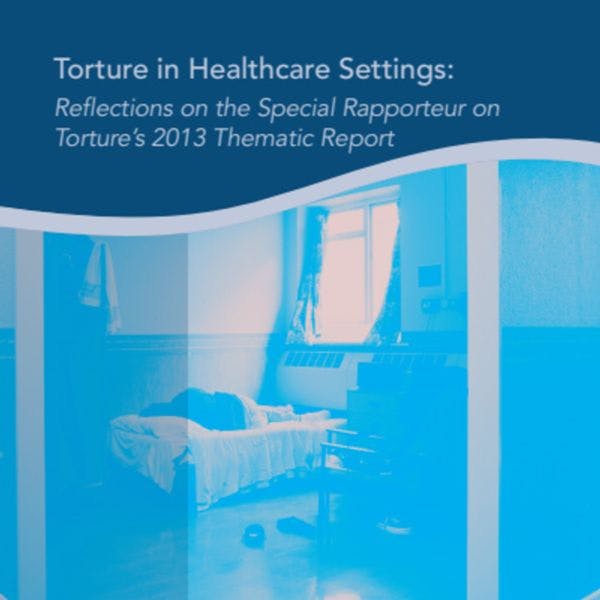Tortura en centros asistenciales: reflexiones sobre el informe temático de 2013 del relator especial de la ONU sobre la tortura
Este informe trata de abordar las lagunas existentes en la legislación y las normas para prevenir la tortura y los malos tratos en el nombre del tratamiento médico en centros de atención de la salud en todo el mundo.
Más información, en inglés, está disponible abajo.
Suscríbase a las Alertas mensuales del IDPC para recibir información sobre cuestiones relacionadas con políticas sobre drogas.
If a group of men grab you off the street, call you a danger to society, and lock you in a “treatment” facility where you are beaten for trying to escape, who should protect you? This is one of the many troubling questions raised in a new report edited by the UN Special Rapporteur on Torture and funded by the Open Society Foundations.
Though human rights groups have criticized government-run drug detention centers for practices including forced labor and torture in countries in East and Southeast Asia, private centers—often run by vigilante groups or religious institutions—can be just as abusive. Accounts of life in these centers have also emerged from Russia and Serbia.
Even countries throughout Latin America—a region of the world has lately lauded for its increasingly progressive stance on drugs—allow these punitive institutions. Governments in these countries at best turn a blind eye, and at worst are complicit.
This report seeks to address existing gaps in law and policy to prevent torture and ill-treatment in the name of medical treatment in health care settings worldwide.
Keep up-to-date with drug policy developments by subscribing to the IDPC Monthly Alert.
Descargas
Temas
Regiones
Perfiles relacionados
- Open Society Foundations (OSF)
